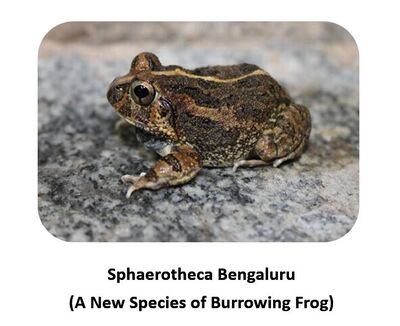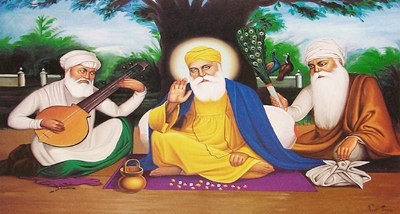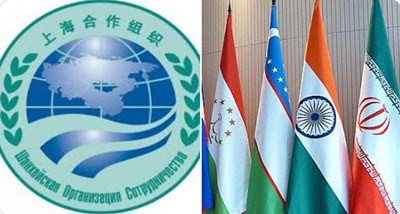Daily Current Affairs and GK | 29 and 30 November 2020

Main Headlines:
- 1. A new species of burrowing frog named after Bengaluru.
- 2. Guru Nanak Jayanti is being celebrated across the country on 30 November.
- 3. China plans to build downstream dam on the lower reaches of Brahmaputra.
- 4. SCO Council of Heads of Government Meet to be hosted by India.
- 5. India will host the SCO Online Exhibition on Buddhist Heritage.
- 6. PM will attend the world famous Dev Deepawali festival in Varanasi.
- 7. Railways Minister inaugurated electrified section of Dhigawara-Bandikui of North Western Railway.
- 8. Rupee continues to lose against US Dollar while currencies of other emerging economies continue to rise.
- 9. Central government may bring Competition amendment bill in winter session of Parliament.
- 10. 900 crore package announced for COVID-19 vaccine development by the Government of India.
- 11. According to a study, future Pandemics can be prevented by Sustainable peatland management.
- 12. Humpback dolphins spotted along Mumbai coast.
- 13. RT-LAMP, a superior technique for COVID-19 testing, now available in India.
Happy February get 35% Off
Use Coupon code FEB26
Topic: Environment and Ecology
1. A new species of burrowing frog named after Bengaluru.
- A new species of burrowing frog has been named after Bengaluru as Sphaerotheca Bengaluru.
- The researchers found this species while documenting Amphibians in the Deccan Plateau parts of Karnataka.
- They named the new species Sphaerotheca Bengaluru to highlight that amphibians from the non-forested area have not been documented completely.
- They also named new species Sphaerotheca Bengaluru to highlight that there are lacunae in restoring frog habitats in Bengaluru.
- Amphibians:
- They live both on land and in water.
- They breathe through gills, skin and lungs.
- They have a three-chambered heart.
- They are cold-blooded (ectotherms). This means that they cannot regulate their body temperature and change place to cope with temperature changes in the environment.
- They are oviparous (produce eggs) and show external fertilization (fertilization outside female body).

Topic: Important Days
2. Guru Nanak Jayanti is being celebrated across the country on 30 November.
- Guru Nanak Jayanti is celebrated every year to mark the birth anniversary of Guru Nanak.
- This year country is celebrating the 551st birth anniversary of Guru Nanak Dev. Guru Nanak Jayanti is also known as Gurpurab.
- He gave the mantra of ‘Ek Onkar’ to his followers, which means to treat all human beings equally without any discrimination. He has also given the message of ‘Naam Japo, Kirat Karo and Vand Chhako’.
- Guru Nanak:
- He was born on Puranmashi of Kartik in 1469.
- He is the first Sikh guru and founder of Sikhism.
- His birth anniversary is celebrated as Guru Nanak Jayanti.
- He had started writing the Guru Granth Sahib.
- Guru Granth Sahib is the holy book of Sikhism.

(Source: PIB)
Topic: India and its neighbourhood
3. China plans to build downstream dam on the lower reaches of Brahmaputra.
- China is planning to construct the first downstream dam on the lower reaches of the Brahmaputra river.
- China’s state-owned hydropower company POWERCHINA last month signed a strategic cooperation agreement with the Tibet Autonomous Region (TAR) government for the implementation of hydropower exploitation in downstream of the Brahmaputra river.
- The agreement has been signed as part of the new Five-year plan.
- In 2015, the first hydropower project was operationalized by China at Zangmu in Tibet. Zangmu is considered to be the world’s highest-altitude hydropower station.
- Dams at Dagu, Jiexu and Jiacha are being developed on the upper and middle reaches of the Brahmaputra river.
- India and China do not have a water-sharing agreement on the river Brahmaputra.
- Concerns for India:
- China will be able to divert the waters of the Brahmaputra river through such hydropower projects to its northern parts throughout the South-to-North water transfer project.
- These hydropower projects are run-of-the-river projects and are not likely to impact the quantity of water. The Brahmaputra is not entirely dependent on upstream flows, with an estimated 35% of its basin is in India. India is mainly concerned about the Chinese activities that might affect water quality, ecological balance and flood management in India.
- Another concern is related to the dam’s location downstream and just across the border from Arunachal Pradesh.
- During the military standoff between the Indian and Chinese Army in 2017, China stopped sharing water-related information as agreed in an MoU signed between the two countries in 2002. Later, it started sharing data in 2018.
- Brahmaputra river:
- The river originates in the name of Dihang or Siang from the Chemayungdung glacier near the Mansarovar lake.
- It is known as Yarlung Zangbo in Tibet and Luit, Dilao in Assam.
- The Brahmaputra is known as Jamuna in Bangladesh.
- It enters India through Arunachal Pradesh.
- Left bank tributaries- Lhasa, Nyang, Lohit, Dhansiri, Kolong
- Right bank tributaries- Kameng, Manas, Beki, Raidak, Teesta, Subansiri
Topic: Summits/ Conferences/ Meetings
4. SCO Council of Heads of Government Meet to be hosted by India.
- India will host the 19th Shanghai Cooperation Organisation (SCO) Council of Heads of Government Meeting on 30 November.
- India is hosting this summit for the first time after joining the Shanghai Cooperation Organisation in 2017. India had taken the chairmanship from Uzbekistan on 2 November 2019. It will end on 30 November 2020.
- This is an annual summit at the level of head of the government of SCO countries. It mainly deals with the trade and economic agenda of the SCO.
- In this meeting, various issues will be discussed, including the proposal to create a special working group on innovation and start-up, a working group in traditional medicine, COVID-19 pandemic, investment spheres, etc.
- Shanghai Cooperation Organization is an important organization for India for cooperation in peace, security, trade, economy, etc.
- The first SCO Start-up forum was also launched this year.
- Four Observer states will also participate in the 19th SCO Council of Heads of Government Meeting- Afghanistan, Belarus, Mongolia, and Iran.
- Shanghai Cooperation Organization (SCO):
- Its creation was announced in 2001 by leaders of six nations.
- Its six members are China, Kazakhstan, Kyrgyzstan, Russia, Tajikistan, and Uzbekistan.
- Currently, it has eight members as India and Pakistan joined it in June 2017.
- Headquarters: Beijing, China
- Vladimir Norov is the current SCO Secretary.
Topic: Art and Culture
5. India will host the SCO Online Exhibition on Buddhist Heritage.
- India to host the SCO Online Exhibition on Shared Buddhist Heritage for the first time.
- This digital exhibition will be dedicated to the common Buddhist heritage.
- It will improve the people to people linkages in the region.
- Buddha:
- He was born in Lumbini in 563 BCE.
- His childhood name was Siddhartha Gautama and he belonged to Shakya clan.
- His first sermon is called Dharma Chakra Pravartana.
- He attained enlightenment under a peepal tree in Bodhgaya.
- He died in Kushinagar in UP.

(Source: News on AIR)
Topic: Miscellaneous
6. PM will attend the world famous Dev Deepawali festival in Varanasi.
- Prime Minister will take part in the world-famous Dev Deepawali festival in Varanasi.
- He will also dedicate the Varanasi-Prayagraj National Highway widening project to the nation.
- Dev Deepawali festival, Varanasi:
- It is celebrated every year on every Poornima of the Kartik month. It is also observed as Tripuri Purnima Snan.
- It was started at the Panchganga Ghat in 1985.
- It is a five-day festival.
Topic: Infrastructure and Energy
7. Railways Minister inaugurated electrified section of Dhigawara-Bandikui of North Western Railway.
- The electrified section of Dhigawara-Bandikui of North Western Railway has been inaugurated by the Railway Minister.
- After the electrification, electric trains will run from Delhi to Ajmer.
- It will help in reducing pollution, save the cost, increase the speed of the train, and reduce dependence on imported fuel.
- Earlier, Indian Railway has also launched the Kisan Rail for the transportation of agricultural products.
- Indian Railways:
- It comes under the Ministry of Railways.
- It is divided into 18 zones and 70 divisions.
- Indian Railways network is the fourth largest in the world by size.
- Piyush Goyal is the current Railways Minister.
- Current Chairman of Railway Board: Vinod Kumar Yadav
Topic: Indian Economy
8. Rupee continues to lose against US Dollar while currencies of other emerging economies continue to rise.
- Rupee is continuing to lose against the US Dollar while currencies of other emerging economies are continuing to rise from April 2020.
- In 2020, Rupee has lost 3.59% against the greenback (informal term for dollar) and performed worst among Asian currencies such as China’s Renminbi, the Philippines’ Peso, Taiwan’s dollar and Korea’s won.
- These currencies appreciated by more than 4% against the dollar. Monetary easing by US Federal Reserve has caused greenback index (US Dollar index) move down by over 10% from its peak in March 2020.
- Between March and October, Rupee also appreciated from 76.3 to 72.7. But, it depreciated in last two months.
- Rupee is continuing to lose despite heavy inflows from Foreign Portfolio Investors (FPIs) over the last two months.
- Foreign Direct Investments (FDIs) have been 25% higher in April September 2020 from that of same period last year.
- In April-September 2020, the average monthly merchandise trade deficit remained at $3.9 billion. In April-September 2019, it remained at $12.9 billion.
- Weakening or depreciation of rupees is mainly due to RBI’s interventions in the currency market.
- In March and April, RBI sold dollars. It is purchasing dollars since then as visible from data available for July to September and from rise in forex reserves from around $540 billion to $575 billion since October.
Topic: Indian Polity
9. Central government may bring Competition amendment bill in winter session of Parliament.
- The Competition amendment bill may give the Competition Commission of India (CCI) power to appoint the head of its investigative arm.
- Currently, the Centre appoints the head of the investigative arm of CCI, Director General.
- The Competition amendment bill may also bring in new settlement and commitment mechanism for quick disposal of cases.
- The experts think that the appointment of the head by CCI itself may affect DG’s autonomy.
- Under the new settlement mechanism, the firm may reach an agreement with CCI for faster disposal of the case by stopping anti-competitive conduct and paying fines. Resolved cases would not be open to appeals.
- Competition Commission of India (CCI):
- CCI was formed on 14 October 2003 under the Competition Commission Act, 2002.
- It has a chairperson and six members. It is a quasi-judicial body.
- The chairperson and members are appointed by the Central government
- It aims to eliminate practices that affect competition in Indian market and protect the interests of the consumers.
- Current Chairperson: Ashok Kumar Gupta
Topic: National News
10. 900 crore package announced for COVID-19 vaccine development by the Government of India.
- The government has announced the Rs 900 crore package for the vaccine development of COVID-19 under the COVID Suraksha Mission.
- This fund will be provided to the Department of Biotechnology for Research and Development of Indian COVID-19 vaccines.
- It will focus on the development of COVID-19 vaccine, from preclinical development level to manufacturing and regulatory facilitation of vaccine. It will consolidate all the funds in a single direction for the development of vaccines.
- It will help in accelerating the development process of the vaccine in India. It will also ensure the manufacturing and license of vaccines.
- At present, 10 vaccine candidates have been supported by the Department of Biotechnology in India. Indigenous vaccine Bharat Biotech and the ZyCov-D are the frontrunners in India.
Topic: Environment and Ecology
11. According to a study, future Pandemics can be prevented by Sustainable peatland management.
- As per a study, sustainable management of peatlands around the tropics can prevent humans from the future pandemics.
- Peatlands are rich in biodiversity, it includes carriers of disease, many vertebrate and invertebrate vectors, etc. The Vertebrates vectors are responsible for the spread of zoonotic disease.
- The tropical areas are facing the issues of habitat loss, wild or human-made fires, and wildlife harvesting, which makes it a perfect place for the emergence of zoonotic infectious diseases.
- Disease like Ebola and HIV was first reported from the peatland areas. High densities of animals in peatland areas make it more vulnerable to humans.
- Peatland: These are a type of wetland in which soils consist of organic matter derived from the remains of dead and decaying plant material.
Topic: Environment and Ecology
12. Humpback dolphins spotted along Mumbai coast.
- Humpback Dolphins were spotted near the Bandra-Worli sea link in Mumbai. This year they have been spotted earlier than usual year.
- The Indian Ocean Humpback Dolphin are mainly found in the waters of Indian Ocean from India to South Africa.
- As per the IUCN red list, it comes under the category of Endangered.
- As per the Marine biologist, their earlier arrival could be related to currents, productivity, and prey availability.
- Dolphins are protected under the Schedule I of the Wildlife Protection Act, 1972.
- Ganges river dolphin is a national aquatic animal.
- Project Dolphin:
- It was launched on 15th August 2020.
- It will be a 10-year project, which will involve many Organisation and Ministries.
- It is launched for the conservation of river and sea dolphins in India.
- It will use modern technology and anti-poaching activities for the conservation of dolphins.

(Source: Wikipedia)
Topic: Biotechnology and Diseases
13. RT-LAMP, a superior technique for COVID-19 testing, now available in India.
- RT-LAMP (Reverse Transcriptase loop-mediated isothermal amplification) technology, a superior technique for COVID-19 testing, is now available in India.
- RT-LAMP:
- It is a one-step nucleic acid amplification method to multiply specific RNA sequences of the coronavirus.
- In this method, RNA is made into copy DNA using the normal reverse transcription. After this, the DNA is amplified using the LAMP technique.
- Currently, Real-Time Reverse Transcription Polymerase Chain Reaction (RT-PCR) test is used to detect the presence of SARS-Cov-2. But it has certain shortcomings.
- What are the shortcomings of RT-PCR test?
- It requires complex and costly equipment.
- Extensive training is required for conducting the test.
- Although the test’s specificity and sensitivity is around 95% yet, there are chances of false results.
- Not able to meet rising demands due to more turnover time.
- COVID-19 serology test is also used to detect antigens related to SARS-CoV-2. But, this test lacks the required accuracy due to low sensitivity and high false negative/positive rates.
- What are the advantages of RT-LAMP technology over RT-PCR technology?
- Cost-effective: Since RT-PCR test requires different temperatures in one cycle; thus, it needs an expensive thermal cycler and real-time PCR machines. While RT-LAMP technology requires a temperature of 65° C and DNA amplification is done at a constant temperature. Thus, no expensive thermal cycler is required. Also, it does not require very costly real-time PCR machines.
- Turnover time is low: LAMP technology is fast as the results can be obtained in 30 minutes and positive samples are amplified within 10 minutes. In contrast, it requires 8-10 hours to complete the PCR technique.
- Does not require higher skills: LAMP technology can be performed with minimum skill. At the same time, extensive training is given to the potential users of RT-PCR.
- Higher accuracy: ICMR has recently validated that the sensitivity and specificity of LAMP technology are 98.7% and 100%, respectively. While for the RT-PCR, the specificity is only 95%.
- Agappe Diagnostics has recently developed RT-LAMP technology indigenously. Their kit named LUME Screen nCoV has been and approved by ICMR.





 28 November 2020 Current Affairs
28 November 2020 Current Affairs 








Comments